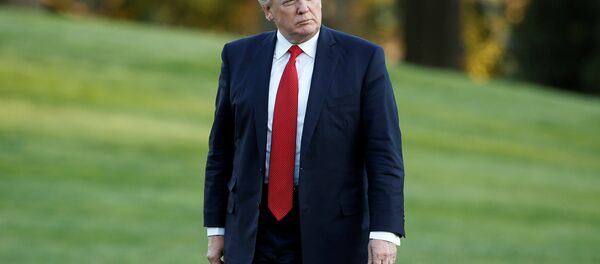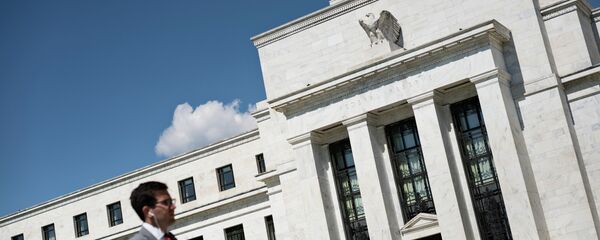Kristian Rouz – One of US President Donald Trump's electoral promises was to boost his country's economic growth through an unprecedented fiscal stimulus plan, which is set to include massive business and individual income tax cuts, greater infrastructure spending, and the rearrangement of border taxation. However, according to the Laffer curve, one of the key tools of macroeconomics, tax base only expands in a lower-taxation environment when the broader economy demonstrates a solid pace of expansion.
The Trumpian tax reform therefore looks like a gamble where stakes are high, given that the US government is already almost $20 trln in debt. The problem is, the White House has no choice but to take on this radical and very risky reform; otherwise a cyclical recession is imminent.
This means that market and broader economic volatility is poised to increase in the US in the coming two years, rendering stocks and startup enterprises more appealing in terms of investment.
"Some of the lowering in (tax) rates is going to be offset by less deductions and simpler taxes," Treasury Secretary Steven Mnuchin said while meeting with the IMF and World Bank in Washington.
GOP politicians are adamant that import tariffs must be increased regardless of heightened inflation expectations, which exceed the Federal Reserve's 2-percent target. The Republicans also want to slash many tax deductions, including the debt interest payments tax deduction, which would hit heavily-indebted US households as well as increase the volume of non-performing loans (NPLs) and loan delinquencies.
"But the majority of it (the fiscal stimulus package) will be made up by what we believe is fundamentally growth and dynamic scoring," Mnuchin said, referring to the Laffer curve rule.
The GOP expects US growth to accelerate to above 3 percent year-on-year after the taxes are cut. Trump is even more optimistic, expecting the greater infrastructure investment to accelerate the broader economy to 4-5 percent annualized growth. However, the higher-risk environment accompanying the tax cuts and deregulation will also increase the chances of a "boom-bust" cycle in the broader economy (like the crude oil market, for example).
Mnuchin, however, said the White House expects some $2 trln in new budget revenues, which will be produced by the quicker pace of economic growth resulting from the tax reform alone. This massive tax reform will be the first since Ronald Regan cut taxes in 1986 – the Bush, Jr.-era tax cuts were undertaken without a significant adjustment of the tax code.
Raising imports tariffs and eliminating tax deductions would immediately boost budget revenues by about $2 trln, Congressional Republicans said. Subsequent gains in tax revenues produced by quicker economic growth would only be an additional bonus.
Therefore, both the White House and Congress agree that the federal government can afford to implement such a massive fiscal stimulus in terms of the significant initial costs. The tax plan might therefore be adopted quickly and without major resistance from Congress – unless Congressional Republicans are too radical for the Trump administration to work with, coordinating the cuts in tax deductions.
"This won't take 'til the end of the year," Mnuchin said. "It will be sweeping, it will be significant and it will create a lot of economic growth."
Meanwhile, the IMF is expecting the US growth to accelerate to 2.3 percent this year, and to 2.5 percent in 2018 compared to just 1.6 percent for 2016. However, the Fund warned, if the Trumpian fiscal stimulus plans fail, the growth outlook may be significantly downgraded, given the mounting risks emerging in the cooling US economy as the current economic cycle draws to a close.







